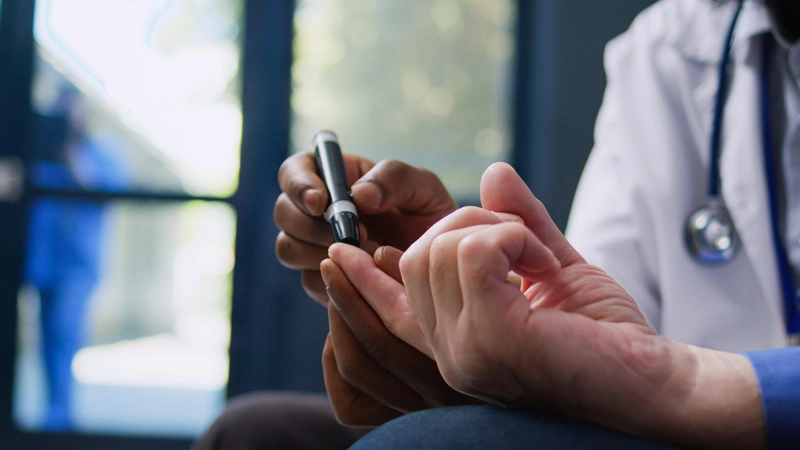- Published on: Mar 06, 2025
- 2 minute read
- By: SecondMedic Expert
National Dentist Day: Best Oral Hygiene Tips Shared By Experts
Every year, on March 6th, National Dentist Day is celebrated to recognize the invaluable contributions of dentists in maintaining our oral health. This special day also serves as a reminder of the importance of good oral hygiene habits. Whether you're looking to improve your daily dental routine or seeking expert advice, we’ve compiled the best oral hygiene tips shared by dentists to help you achieve a healthy and confident smile.
1. Brush Properly, Not Just Regularly
Brushing twice a day is essential, but how you brush matters just as much as how often. Experts recommend using a soft-bristled toothbrush and fluoride toothpaste. Follow these steps for effective brushing:
-
Use a gentle, circular motion rather than scrubbing.
-
Brush for at least two minutes twice a day.
-
Ensure you clean all tooth surfaces, including the back molars and gum line.
2. Flossing is Non-Negotiable
Flossing removes food particles and plaque from between your teeth where your toothbrush can’t reach. Dentists suggest flossing at least once a day to prevent cavities and gum disease. If traditional flossing is difficult, consider using:
-
Water flossers
-
Interdental brushes
-
Floss picks
3. Rinse with Mouthwash for Extra Protection
Using an antibacterial mouthwash helps reduce plaque, prevents bad breath, and protects against gum disease. Look for a fluoride-based or alcohol-free mouthwash, especially if you have sensitive gums.
Tip: Rinse for 30 seconds after brushing and flossing for best results.
4. Eat a Tooth-Friendly Diet
What you eat significantly impacts your oral health. Dentists recommend incorporating the following foods into your diet:
-
Dairy products (milk, cheese, yogurt) to strengthen enamel.
-
Crunchy fruits and vegetables (apples, carrots) to naturally clean teeth.
-
Nuts and seeds for essential minerals like calcium and phosphorus.
-
Green tea for its antibacterial properties.
Avoid excessive consumption of sugary snacks, acidic beverages, and sticky candies, which can erode enamel and lead to cavities.
5. Stay Hydrated and Limit Sugary Drinks
Drinking plenty of water helps wash away food particles and bacteria, keeping your mouth fresh and clean. Limit soda, sports drinks, and coffee, as they can stain teeth and contribute to decay.
Pro Tip: If you drink sugary or acidic beverages, use a straw to minimize direct contact with your teeth.
6. Replace Your Toothbrush Regularly
A worn-out toothbrush is ineffective at cleaning your teeth. Dentists recommend replacing your toothbrush every 3-4 months or sooner if the bristles are frayed. Using an electric toothbrush can also improve plaque removal.
7. Schedule Regular Dental Checkups
No matter how diligent your oral hygiene routine is, visiting your dentist every six months is crucial for professional cleanings and early detection of dental issues. Regular checkups can help prevent cavities, gum disease, and even serious health conditions linked to poor oral health.
8. Protect Your Teeth While Playing Sports
If you engage in contact sports, wearing a custom-fitted mouthguard can protect your teeth from injuries and fractures. This simple preventive measure can save you from costly dental treatments.
9. Avoid Smoking and Tobacco Products
Smoking and tobacco use are major contributors to gum disease, tooth loss, and oral cancer. If you’re looking for another reason to quit, your oral health is a great motivation. Talk to your dentist about resources to help you quit.
10. Teach Kids Good Oral Hygiene Habits Early
Children should learn proper oral hygiene habits from a young age. Encourage them to:
-
Brush their teeth with fluoride toothpaste.
-
Floss regularly.
-
Visit the dentist every six months.
-
Avoid excessive sweets and sugary drinks.
Setting a strong foundation for oral health can prevent future dental issues and ensure a lifetime of healthy smiles.
Conclusion
This National Dentist Day, take the opportunity to improve your oral care routine by following these expert tips. Good oral hygiene isn’t just about having a bright smile—it’s also essential for overall health and well-being. Show appreciation for your dentist by prioritizing your dental health and scheduling your next checkup.
For personalized dental care advice, consult a professional at SecondMedic, where expert guidance helps you maintain optimal oral health.
Read FAQs
A. National Dentist Day is celebrated every year on March 6th to honor dentists and raise awareness about the importance of oral health and dental hygiene
A. Experts suggest brushing twice daily, flossing once a day, using mouthwash, staying hydrated, and visiting the dentist every six months for optimal oral health.
A. Dentists recommend replacing your toothbrush every 3-4 months or sooner if the bristles become frayed to maintain effective cleaning.
A. Dairy products, crunchy vegetables, nuts, and green tea help strengthen teeth, clean plaque naturally, and promote gum health.
A. Maintain a consistent oral hygiene routine, limit sugary foods, avoid smoking, drink plenty of water, and schedule regular dental checkups to prevent cavities and gum disease.










